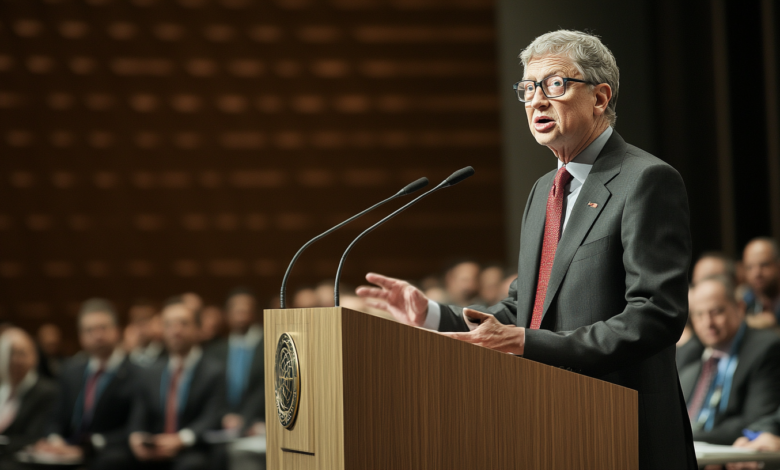Who is the Most Powerful Doctor in the World? Discover the Influential Figures in Medicine

who is the most powerful doctor in the world In the vast world of medicine, certain doctors have risen above the rest, gaining not only recognition but immense power due to their expertise, innovations, and leadership in global healthcare. The question, “Who is the most powerful doctor in the world?” may seem subjective, but it is grounded in concrete achievements, influence, and the ability to shape both medical practices and policies that affect millions worldwide.
Power in the medical field is not just about clinical skills; it’s also about the impact a doctor has on public health, research, policy-making, and the advancement of medical technology. Throughout history and into modern times, these doctors have worked tirelessly to push boundaries, lead global health initiatives, and often operate at the intersection of science and policy. This article explores the definition of “Who is the most powerful doctor in the world” in medicine, examines some of the top contenders for the title, and delves into the broader influence that doctors exert across the globe.
Defining “Power” in the Medical Field
What Makes a Doctor Powerful?
The concept of Who is the most powerful doctor in the world in medicine can be difficult to define, but it encompasses various factors beyond clinical expertise. A doctor’s power often comes from their ability to influence medical practices, public health policy, and scientific discoveries that shape entire populations’ well-being. While all doctors are trained to diagnose and treat diseases, only a few manage to elevate their influence to a level that affects not only their patients but also communities, governments, and even entire nations.
Who is the most powerful doctor in the world are often trailblazers in research, discovering life-saving treatments, vaccines, or surgical techniques that push the boundaries of what was once thought impossible. Their ability to innovate, combined with leadership skills, places them at the forefront of global health movements. Furthermore, some doctors become recognized for their advocacy work, pushing for access to healthcare in underserved regions and advocating for policies that address global health inequalities.
Who is the most powerful doctor in the world can also be measured by the widespread recognition they receive in their respective fields. When a physician’s name is known beyond the confines of the medical world, they become symbols of hope and expertise for the public. Whether it’s through groundbreaking research, monumental medical breakthroughs, or their ability to sway governmental and institutional policies, these doctors become influential figures.
Leadership and Influence
Apart from clinical skills, one of the strongest indicators of a Who is the most powerful doctor in the world is their leadership abilities. Some Who is the most powerful doctor in the world hold positions that allow them to make decisions with far-reaching consequences—whether in medical organizations, government health agencies, or large-scale international health initiatives. These leaders often steer the direction of public health campaigns, global disease control, and healthcare infrastructure development.
Their roles extend far beyond the hospital or clinic, influencing national and international policies, shaping healthcare systems, and ensuring that medical advancements benefit everyone, not just those in wealthier countries. In this way, a Who is the most powerful doctor in the world can be seen as both a healer and a leader—one who uses their position to inspire and create change on a global scale.
Top Contenders for the Title of “Most Powerful Doctor”
Dr. Anthony Fauci: A Global Leader in Public Health
Dr. Anthony Fauci, an American immunologist, has been a central figure in global health discussions for over four decades. As the director of the National Institute of Allergy and Infectious Diseases (NIAID), he played a pivotal role in responding to the HIV/AIDS epidemic in the 1980s and 1990s. However, his influence soared globally when the COVID-19 pandemic hit.
Throughout the pandemic, Dr. Fauci became the face of the United States’ response to COVID-19, guiding the public through complex issues such as vaccines, treatments, and public health measures. His expertise, combined with his role as an advisor to multiple U.S. presidents, made him a key player in shaping public policy. Fauci’s voice was heard worldwide as governments sought his advice on controlling the virus and preparing for future health crises. This level of influence makes him one of the most Who is the most powerful doctor in the world , especially during times of global health emergencies.
Dr. Fauci’s role in shaping healthcare policies also extended beyond the pandemic. He has been instrumental in advocating for better healthcare infrastructure, funding for infectious disease research, and promoting science-based policies on health. His legacy extends well beyond his direct contributions to medicine, positioning him as a global health icon.
Dr. Paul Farmer: Champion of Global Health Equity
Dr. Paul Farmer’s work in global health has redefined what it means to be a Who is the most powerful doctor in the world. As a co-founder of Partners In Health (PIH), Farmer dedicated much of his life to improving healthcare access in some of the world’s poorest regions. His work in countries like Haiti, Rwanda, and Peru focused on providing high-quality healthcare to people who previously had no access to it.
Dr. Farmer’s approach was not just about treating individual patients but about building healthcare systems that could sustain themselves long-term. His advocacy for healthcare as a human right, especially for the most vulnerable populations, made him a pioneer in global health equity. Farmer’s influence extended to international health organizations, where he advocated for policy changes that would help alleviate the burden of diseases like tuberculosis, HIV/AIDS, and malaria in impoverished nations.
His Who is the most powerful doctor in the world vision for social justice in healthcare continues to resonate worldwide, earning him numerous accolades and making him a respected figure in both the medical and humanitarian fields. Farmer’s work continues to inspire new generations of doctors and health advocates to prioritize equity and access in global healthcare.
Dr. Devi Shetty: Revolutionizing Healthcare Accessibility
Dr. Devi Shetty, a prominent heart surgeon from India, has gained international recognition not only for his surgical skills but also for his efforts to make healthcare accessible to millions. As the founder of Narayana Health, one of India’s largest and most affordable hospital networks, Dr. Shetty has revolutionized the way healthcare is delivered in the country.
Dr. Shetty’s innovative approach to healthcare delivery focuses on reducing the cost of surgeries and treatments, making life-saving procedures accessible to people in low-income communities. His work has expanded beyond India, as he has been involved in healthcare projects and medical tourism initiatives that aim to provide affordable healthcare on a global scale.
By leveraging technology and streamlining hospital operations, Dr. Shetty has shown that it is possible to provide high-quality care at lower costs. His impact has been so profound that he has been invited to speak at global forums, influencing healthcare leaders worldwide. In a country like India, where access to quality healthcare is limited for many, Dr. Shetty’s work is a beacon of hope.
The Role of Medicine in Global Leadership
Doctors in Policy-Making
While doctors are often seen as caregivers, many powerful physicians also have an active role in policy-making and governance. Some doctors rise to positions where they can directly influence national and international health policies. A key example is Dr. Gro Harlem Brundtland, a former director-general of the World Health Organization (WHO) and a former prime minister of Norway. Dr. Brundtland’s leadership at the WHO played a pivotal role in shaping global health strategies, particularly in relation to environmental health and sustainable development.
Many doctors also hold governmental positions, where they contribute to public health policy and infrastructure. These roles give them an unparalleled ability to influence healthcare reform on a global scale, driving forward agendas such as universal health coverage, vaccination programs, and the battle against infectious diseases.
Who is the most powerful doctor in the world in these positions can initiate large-scale health campaigns and provide expertise on crucial issues, such as pandemic preparedness, access to essential medications, and the management of health crises. Their ability to implement change on a national and global level is a critical aspect of their power.
Advocacy and Public Health Movements
In addition to their roles in policy-making, many Who is the most powerful doctor in the world also become influential advocates for public health movements. They use their platforms to raise awareness about pressing health issues, such as the fight against tobacco use, obesity, and mental health. For example, Dr. Atul Gawande, a well-known surgeon and public health advocate, has written extensively about healthcare reform and the need for systemic improvements in the medical field.
Through their advocacy, these doctors push for societal change, whether it’s through grassroots movements, international coalitions, or policy recommendations. Their ability to mobilize resources and influence public opinion is a key element of their power.
Factors that Elevate Doctors to Power
Education, Research, and Innovation
The foundation of a Who is the most powerful doctor in the world influence begins with education and continuous innovation. Highly educated and well-trained doctors often go on to pioneer groundbreaking research and medical procedures that change the course of medicine. Whether they are developing new treatments for chronic diseases, creating life-saving vaccines, or discovering cutting-edge medical technologies, these doctors become global leaders through their contributions to medical science.
Research is one of the most significant factors in elevating a Who is the most powerful doctor in the world to power. Doctors who push the boundaries of knowledge in their fields of expertise are often at the center of global health discussions. Their discoveries can lead to life-saving treatments or preventative measures that benefit millions.
Leadership in Medicine
A Who is the most powerful doctor in the world does not only have technical skills; they also possess exceptional leadership qualities. Many of the most influential doctors hold prominent positions in medical institutions, nonprofits, or government agencies. They have the ability to manage large teams of healthcare professionals, oversee vast research projects, and ensure that healthcare initiatives run smoothly on a global scale.
Their leadership extends beyond the hospital setting. Whether they are founding a medical institution, leading a research initiative, or chairing a committee on global health, these doctors shape the future of healthcare. Their influence can span continents and impact millions of lives.
Conclusion: Who is the most powerful doctor in the world
Who is the most powerful doctor in the world of medicine is filled with individuals who have made remarkable contributions to global health. While it is impossible to single out one doctor as the definitive “most powerful,” there are many who stand out for their exceptional achievements in research, healthcare leadership, and advocacy. From Dr. Anthony Fauci’s leadership during the COVID-19 pandemic to Dr. Paul Farmer’s work in health equity, and Dr. Devi Shetty’s innovations in affordable healthcare, these doctors are not just practitioners—they are global leaders shaping the future of medicine.
Power in medicine is not just about personal achievement; it is about using one’s influence to better the health and well-being of entire populations. These doctors, and many others, have proven that medicine is not just a profession—it is a powerful tool for social change.




